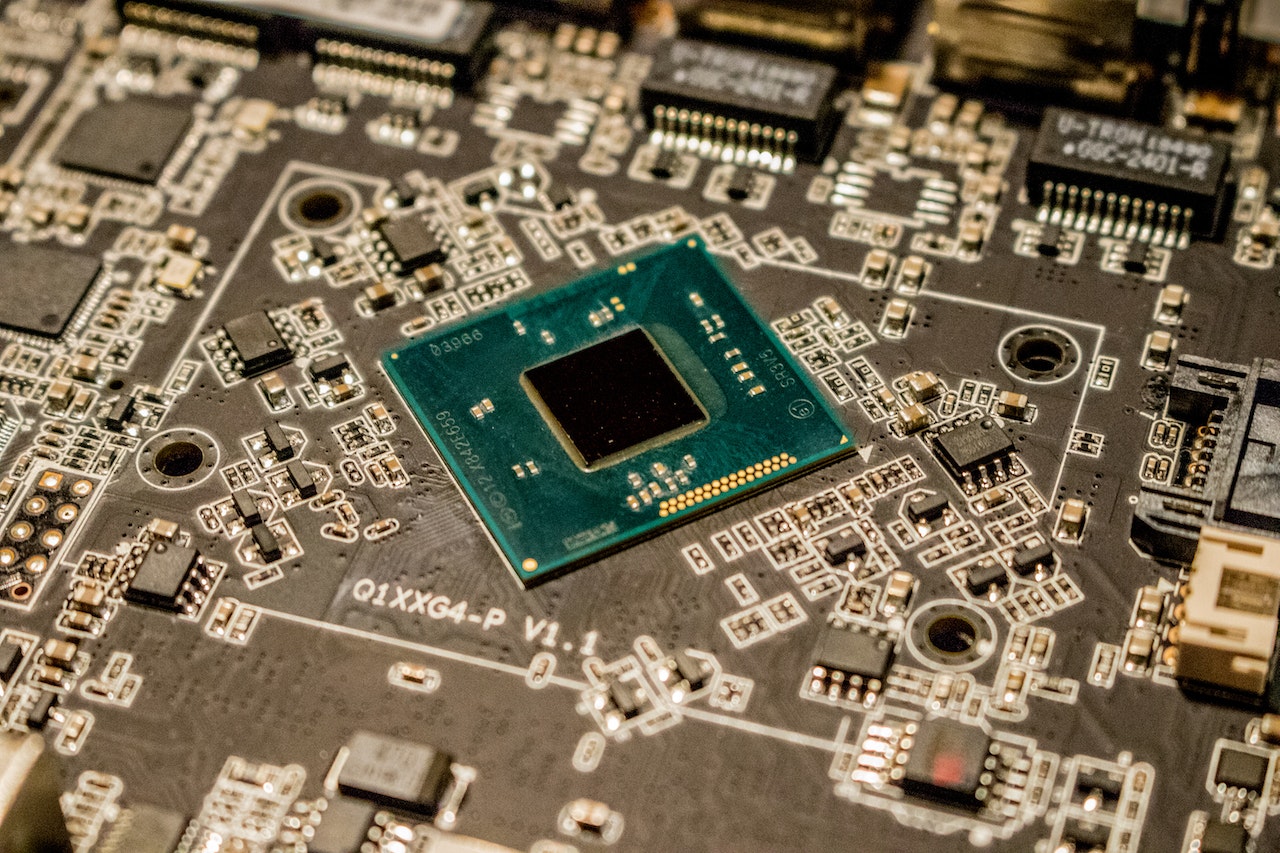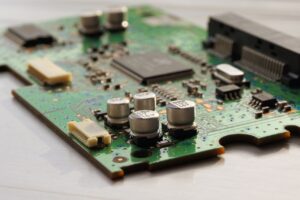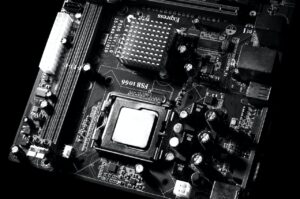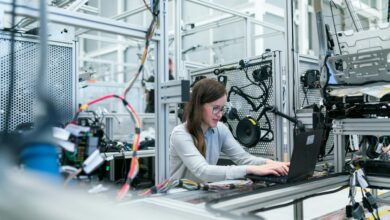Uses of Transistors in Computer System

Transistors in computers play a fundamental role in the functioning of computer systems, serving as the building blocks that make modern technology possible. These tiny electronic devices act as switches, controlling and amplifying electrical signals within a computer’s circuits. However, their impact extends far beyond simple on/off functions. One key contribution of transistors is their ability to perform logical operations, which are essential for processing information in computers. By leveraging transistors’ binary nature – where they can only represent two states, typically denoted as 0 and 1 – complex calculations can be achieved through combinations of these basic operations. This is the foundation of the digital circuitry used in CPUs (Central Processing Units) that power our computers. Without transistors, it would be impossible to execute tasks at such incredible speed and accuracy.
Transistors in computers have also revolutionized storage capabilities in computer systems. The integration of these devices into memory cells allows for data to be electronically stored and retrieved swiftly and reliably. One example is Random Access Memory (RAM), where each transistor represents a single bit of information that can be addressed individually by the CPU when required. This breakthrough not only made memory technologies more efficient but has also contributed to advancements like real-time multitasking and virtual memory systems.
While often overlooked, the role played by transistors in computer systems cannot be overstated. These minuscule components serve as the backbone of computing technology by enabling logical operations and enhancing data storage capabilities.
The importance of transistors in computer systems

Transistors are the unsung heroes of modern computer systems. Without these tiny semiconductor devices, our computers would still be bulky and inefficient machines. Transistors in computers serve as the building blocks of digital circuits, allowing for the manipulation and control of electrical signals in computers. They are essential for amplifying and switching electronic signals, which are the fundamental operations that make computing possible. One key advantage of transistors is their size. These miniature components can be packed onto a single integrated circuit (IC), enabling us to have incredibly powerful processors in devices as small as smartphones or laptops. Transistors also greatly improve efficiency by consuming less power compared to older vacuum tube technology. This means that modern computers can perform complex tasks while using minimal energy.
Transistors play a crucial role in digital logic circuits that form the backbone of computer systems. By combining multiple transistors together into logical gates, computers can process binary data and execute instructions at an astonishing speed. The ability to perform logical operations allows for tasks such as calculations, comparisons, and decision-making processes—all essential functions required by any computer system. Transistors in computers revolutionized systems by providing smaller sizes, increased efficiency, and enhanced computational capabilities through digital logic circuits. As technology continues to evolve rapidly, it is important to recognize the significant role that transistors play in driving this progress forward.
Functioning of transistors in computer systems
Transistors are the unsung heroes of the computer world, quietly working behind the scenes to power our devices and keep us connected. These tiny electronic components play a crucial role in the functioning of computer systems by amplifying or switching electrical signals. They act as miniature switches, controlling the flow of current between different parts of a circuit. One fascinating aspect of transistors is their ability to amplify weak electrical signals. This allows them to take small input signals and produce larger output signals. It’s through this amplification process that transistors enable computers to process information with precision and accuracy. By manipulating electrical currents, transistors can quickly perform complex calculations and execute commands, making them an indispensable part of any computer system.
Transistors also serve as switches that can either allow or block the flow of electric current in a circuit. The key lies in their ability to control current based on an input signal. When an electric charge is applied to one terminal (known as the base) of a transistor, it modifies its conductivity properties, allowing or preventing current from flowing between its other two terminals (known as the collector and emitter). This switching capability enables transistors in computers to represent binary data—the foundation for all digital operations—and make decisions at lightning speed while consuming minimal power. Understanding how transistors function in computer systems opens up a world full of possibilities.
Applications of transistors in computer systems

Transistors have revolutionized the world of computer systems and are found in almost every electronic device we use today. One of the most significant applications of transistors in computer systems is their use as switches. By controlling the flow of electrical current, transistors act as binary switches, allowing computers to perform calculations and process vast amounts of information. Without transistors, it would be virtually impossible to build compact, powerful computers that can perform complex tasks. Another important application of transistors in computer systems is their use as amplifiers. Transistors amplify weak electrical signals, enabling computers to process and transmit information more effectively. This is particularly crucial in audio and video applications, where clear sound and high-quality images are essential. In addition to amplifying signals, transistors can also function as oscillators to generate stable frequencies used for timing functions within computer circuits.
Transistors play a vital role in computer systems by acting as binary switches for processing information and performing calculations. They also serve as amplifiers for enhancing weak electrical signals and generating stable frequencies. The versatility and reliability of transistors have made them an integral part of modern-day computers, paving the way for technological advancements that continue to transform our lives on a daily basis.
The indispensable role of transistors in modern computers
It is undeniable that transistors play an indispensable role in modern computers. These tiny devices, which act as electronic switches, form the backbone of all digital systems. Without them, our computers would not be able to process information at lightning-fast speeds or perform complex calculations with accuracy and precision. One key aspect of transistors is their ability to amplify signals, allowing for the transmission of information across long distances without losing quality or clarity. This makes it possible for us to connect with people around the world through video calls, browse the internet effortlessly, and access vast amounts of data at our fingertips.
Transistors have revolutionized the storage capabilities of computers. Through the use of semiconductors, they enable memory chips to store massive amounts of data in a compact form. This has led to incredible advancements such as solid-state drives (SSDs), which offer faster read and write speeds compared to traditional hard disk drives (HDDs). With each passing year, the capacity and efficiency of storage technologies continue to improve thanks to further advancements in transistor technology. In essence, transistors are an essential component that underpins our entire digital world. From supercomputers handling complex scientific computations to smartphones fitting into our pockets – none of it would be possible without these remarkable inventions. As we move forward into an increasingly interconnected future filled with artificial intelligence and virtual reality, we can expect transistors to continue pushing boundaries and playing a pivotal role in shaping technological advancements yet unseen.



